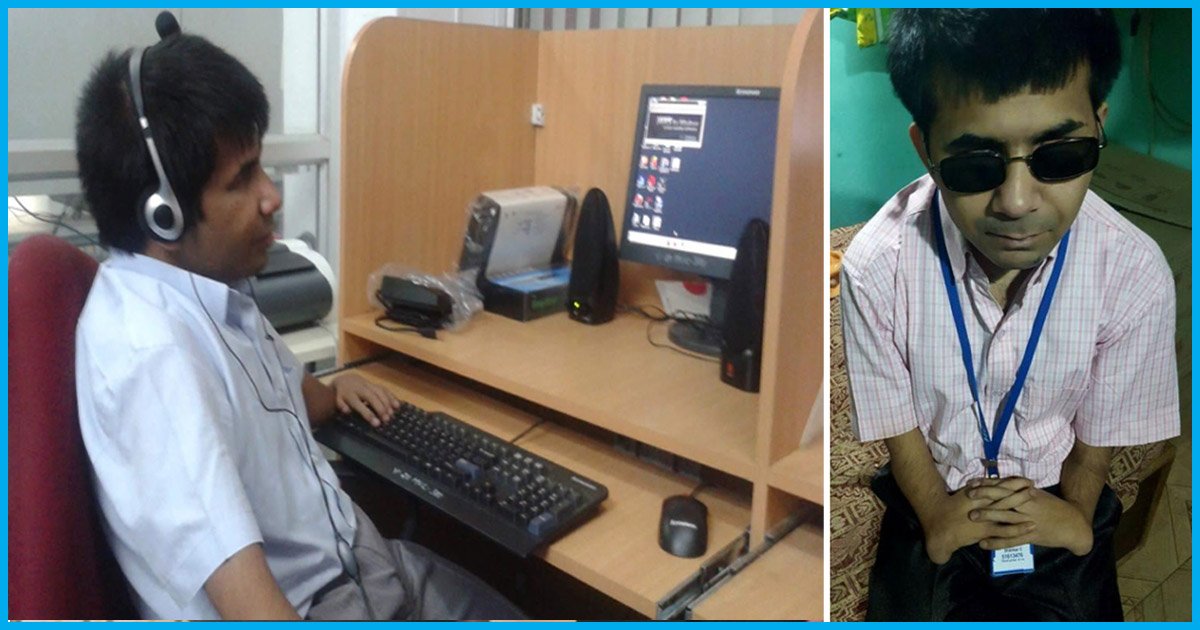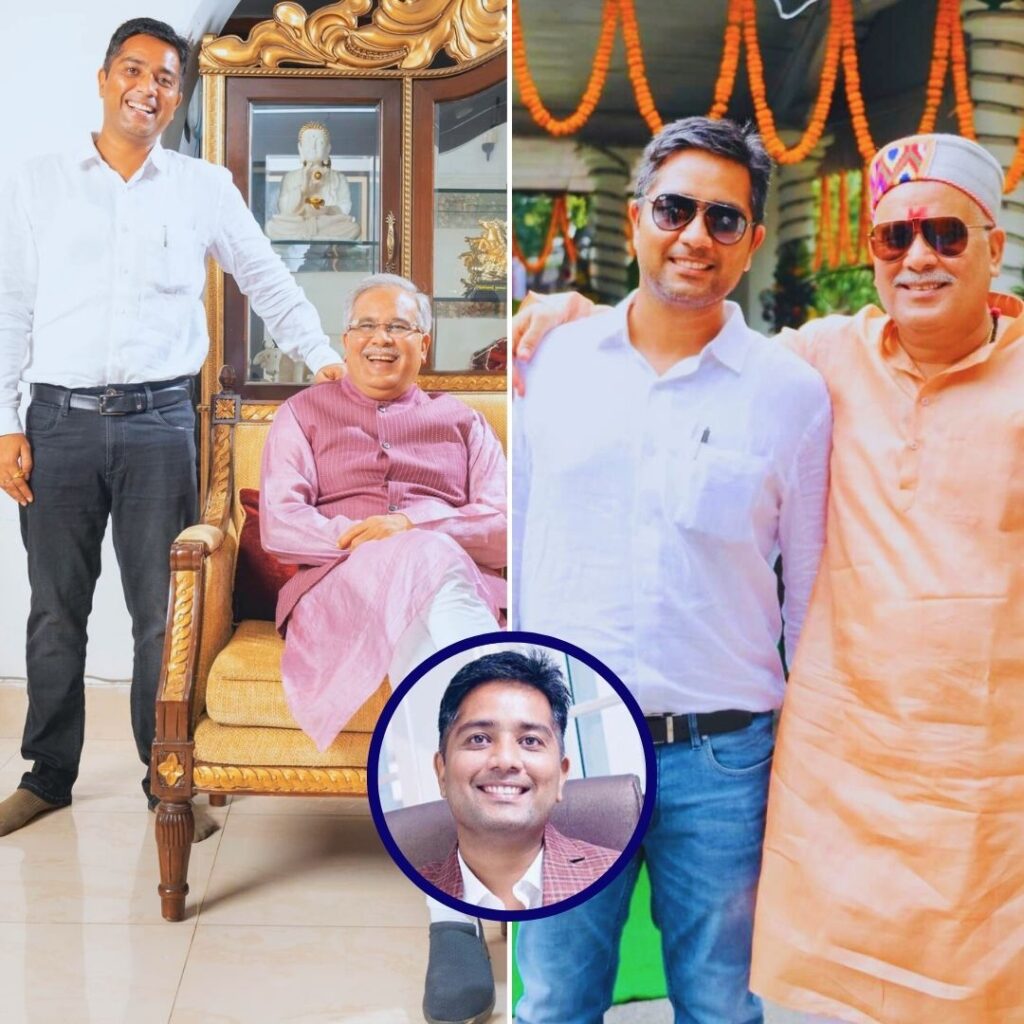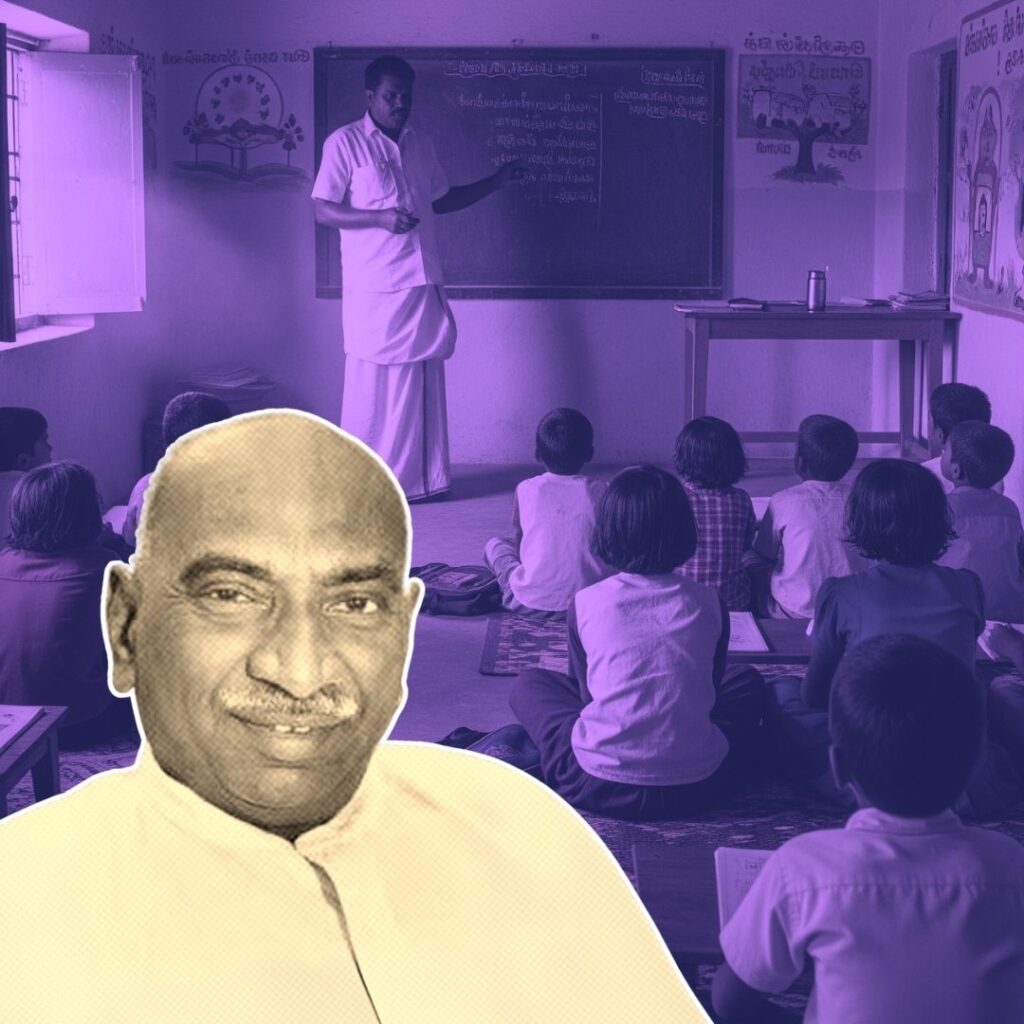A software tester at an IT company in Bangalore, Shankar Chandrasekhar lives independently and enjoys exploring technology and gadgets. He often spends his weekends visiting electronic stores to explore and share his experiences with his groupmates.
Shankar sounds like any other professional working at a job he loves. However, he is an inspiration for many.
A visually impaired 29-year-old man, Shankar also has limited arm movements.
Shankar Chandrasekhar A journey of obstacles
Originally from Bareilly, Shankar faced various challenges as a student. He studied at Shree Ramana Maharishi Academy for the blind in Bengaluru until class 10 but had to move back to his hometown due to lack of amenities for differently-abled people.
Two years later, he again shifted to Bengaluru to pursue higher studies. He completed a diploma in teaching the visually impaired with a certificate from Rehabilitation Council of India. He then went on to study computers at Enable India.
Shankar is an inspiration for the visually impaired
Shankar’s first job was with an NGO in Bangalore called Cheshire Disability Center Manipal Hospital. This was when he realised the need for workplace solutions in banking and other sectors for the visually impaired and started teaching computers to the differently-abled.
With the help of Chiranjivi, a network engineer who bought him a laptop and paid his internet bills, Shankar learned web programming like HTML, C++, Java scripting, etc. using online tutorials.
In 2015, he attended an event to teach Braille to the visually impaired. This was when he met another person called Sharath, who helped him get a job in the software industry. From there on, Shankar never looked back.
Shankar working at a computer in his office Initiatives taken to help the visually impaired
“Technology and accessibility are a bit expensive for people like me, and we don’t understand it easily anyway. Since most people ask me for suggestions before getting their gadgets, it becomes essential for me to at least have the basic knowledge of the current technology”, said Shankar, speaking to The Logical Indian.
Shankar has been sharing his knowledge on technology with his visually impaired friends on a WhatsApp Group called ‘Tech-Accessibility’. He has also been preparing video tutorials on a Youtube channel called ‘Tech Accessibility Tutorials’, along with his friend Vyshavi.
“Occasionally, I also attend sensitisation workshops to create awareness on the obstacles faced by the differently-abled while using technology,” said Shankar.
“My team and I plan to cover various topics on Windows and Android through these tutorial videos. Currently, there are 18 videos on different applications. The whole objective of these tutorials is to help visually impaired people learn technology themselves,” he added. “I am also operating a website which is aimed to train disabled people in different topics on technology and computers.”
However, due to certain limitations, Shankar is unable to give the required focus to the website and is looking for volunteers who can help him design its interface and add the content which is already prepared by him.
Future goals
Shankar expressed his keen desire to work on two critical objectives.
“First, I want to work towards creating awareness about the web, desktop and mobile applications’ accessibility in schools and colleges. Second, I want to work with the National Informatics Center as it is my desire to make all websites accessible to disabled people,” he said.
Shankar’s mind is filled with ideas as he spoke to The Logical Indian. He talked passionately about various system improvements that universities and colleges can implement.
“Educational institutions should introduce accessibility and its assistive technology as a mandatory subject to create more awareness about the issue. Schools, colleges and universities should install audio libraries to accommodate visually impaired students with greater ease,” he said.
Urging the electronic media to make their content more accessible to the disabled, Shankar said, “Many times, when I am listening to television, various TV anchors often say that, ‘For more information, please see below scroll’, which is naturally not accessible to the visually impaired”.
“Buses should have voice prompts for each stop so that visually challenged people can travel without asking for help. Transport applications like OLA and UBER should have an option to upload user images so that disabled people can easily be recognised and catered to accordingly,” he added. “IT companies should add accessibility options in their products which are more disabled-friendly. Every firm should hire at least five disabled employees who can test the accessibility options of the products and suggest improvements/changes before its launch in the market.”
After a substantive interview, Shankar concluded with the suggestion…











